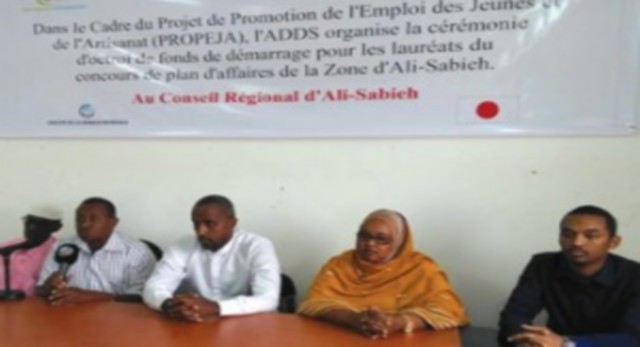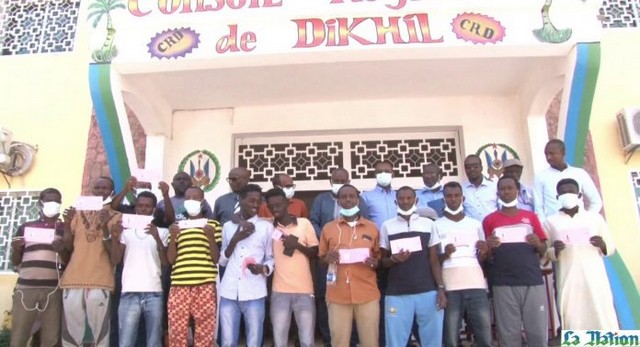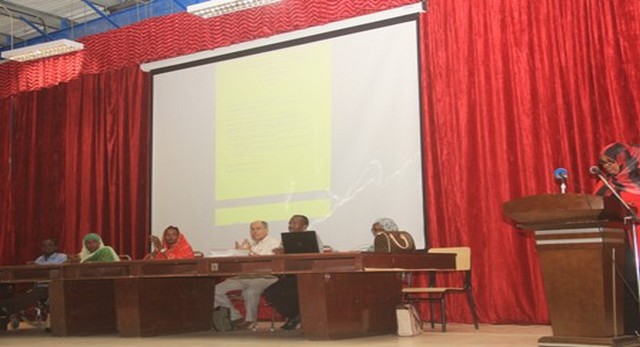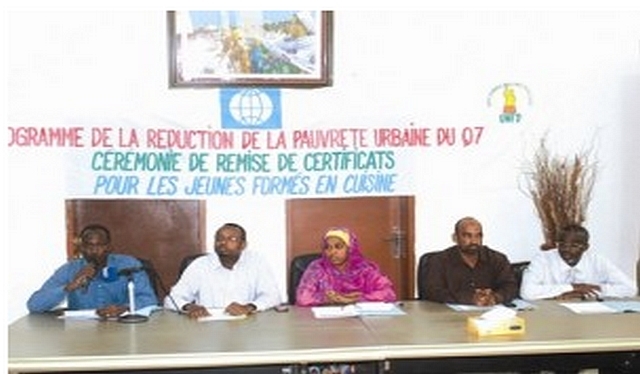Yesterday at the palace of the people, Prime Minister Mohamed Kamil Abdoulkader chaired the general meeting of the credit union savings and loan (CPEC) of Djibouti. The event saw the participation of several members of government, including Secretary of State for National Solidarity Zahra Youssouf Kayad, and numerous officials from various backgrounds.
The State Secretariat for National Solidarity, responsible for the institutionalization of the microfinance sector and the Central Bank of Djibouti jointly held yesterday at the palace of the people, the ordinary general meeting of the credit union savings and credit (CPEC) of Djibouti.
Under the aegis of Prime Minister Mohamed Kamil Abdoulkader, the ceremony was attended on site several government members, including Secretary of State for National Solidarity Zahra Youssouf Kayad, the Governor of the Central Bank of Djibouti, Ahmed Osman Ali, the director general of the Djibouti Social Development Agency (ADDS), Mahdi Mohamed Djama. Hosted by the director of micro finance department of the ADDS, Houmed Mohamed Abdallah, the ordinary general meeting of the CPEC was an opportunity for policy makers as well as for technical and financial partners to discuss the positive impact Microfinance in terms of job creation self among people of working age but economically weak.
In this sense, the government has made significant investments through the National Solidarity Fund (NSF) in the development of microfinance. And through injections subsidies for infrastructure projects that went hand in hand with the mobilization of credit lines.
Thus, the CPEC of Djibouti, as we know it today, was born from the merger of the National Savings and Credit Djibouti, established in 2008 with support from IFAD and the Caisse Populaire of Savings and Credit created in 2009 by the ADDS based on the former grouping beneficiaries and intermediaries microcredit associations of former Social Development Fund. This merger took place in April 2010. It aimed to streamline resources and build on the achievements of these two entities. Certainly, it allowed the desired development. But it has also proved somewhat binding on stakeholders, in terms of ownership and technicality, due to size effects and the industry maturation period.
… CPEC and BCD, a collaboration rosy.
In this context, it is quite naturally the intervention of the Central Bank which has proved necessary to assist CPEC of Djibouti in its recovery efforts. This intervention is expressed by turning on the provisional administration of the CEPEC in January 2012, accompanied by an action plan to correct the dysfunctions and address key gaps that hinder the momentum initiated by CEPEC of Djibouti.
The train lavished measures and the adjustments beginning to take effect. It seems to be the perfect time to come to hand the natural leaders and return to normal operation of the fund.
Also, the organization of the general meeting sounds like a fresh start thanks to which the statutory bodies of the CPEC of Djibouti to find consolidated.
The perpetuation of strengthening cash capacity after the temporary administration and the election of the governing bodies, will be through the technical support of long-term international firm specialized in microfinance. With such a device, the CPEC of Djibouti will have appropriate support to its sustainable development and its fulfillment.
After listening to the various client testimonials of CPEC but also politicians, the Prime Minister did not fail to acknowledge the work of CPEC that finances many activities which previously remained outside any loan circuit and savings. « Now, thanks to this new financial system, poor people can also develop their activities about which they will generate revenues, » said Mr Mohamed Kamil Abdoulkader. He added that « the government, anxious to respond to the will of the President of the Republic to make every effort to assist the most vulnerable populations, develop the modern financial leverage to put them out of their precarious situation permanently. »
For his part, Governor of the Central Bank reversed the progress made since the informal microcredit activity in the early 2000s to reach the present stage where microfinance institutions are part of the Djiboutian financial landscape as well as the banks.
Osman Ali Ahmed reassured his audience on the policy of BCD, dedicated to the development of the microfinance sector.
« The Central Bank will not remain standing still and will continue to fully assume its regulatory mission through close supervision of microfinance institutions, » he insisted emphatically. Before concluding, the top official urged the development partners but also the private sector to join this process to leverage the technical and financial potential of microfinance in Djibouti. As the sector has enormous advantages and opportunities.
Following the official response, the Prime Minister launched the work of the ordinary general meeting of the CPEC of Djibouti.
Micro Finance: The CPEC of Djibouti held its general assembly
A propos

L’Agence Djiboutienne de Développement Social, Etablissement public à caractère administratif, issue de la fusion de l’ancienne Agence Djiboutienne d’Exécution des Travaux d’Intérêt Public (ADETIP) et de l’ancien projet Fonds Social de Développement (FSD).
- Agence Djiboutienne de Développement Social
- Avenue Mohamed DJAMA ELABEH Plateau du serpent
- BP:4298 Djibouti
- République de Djibouti
- Tel: +253 35 86 55/ +253 35 82 82
- E mail: direction@adds.dj
- Site Web: www.adds.dj
Nous localiser via google map
© Agence Djiboutienne de Développement Social - 2025. Tous droits réservés






















